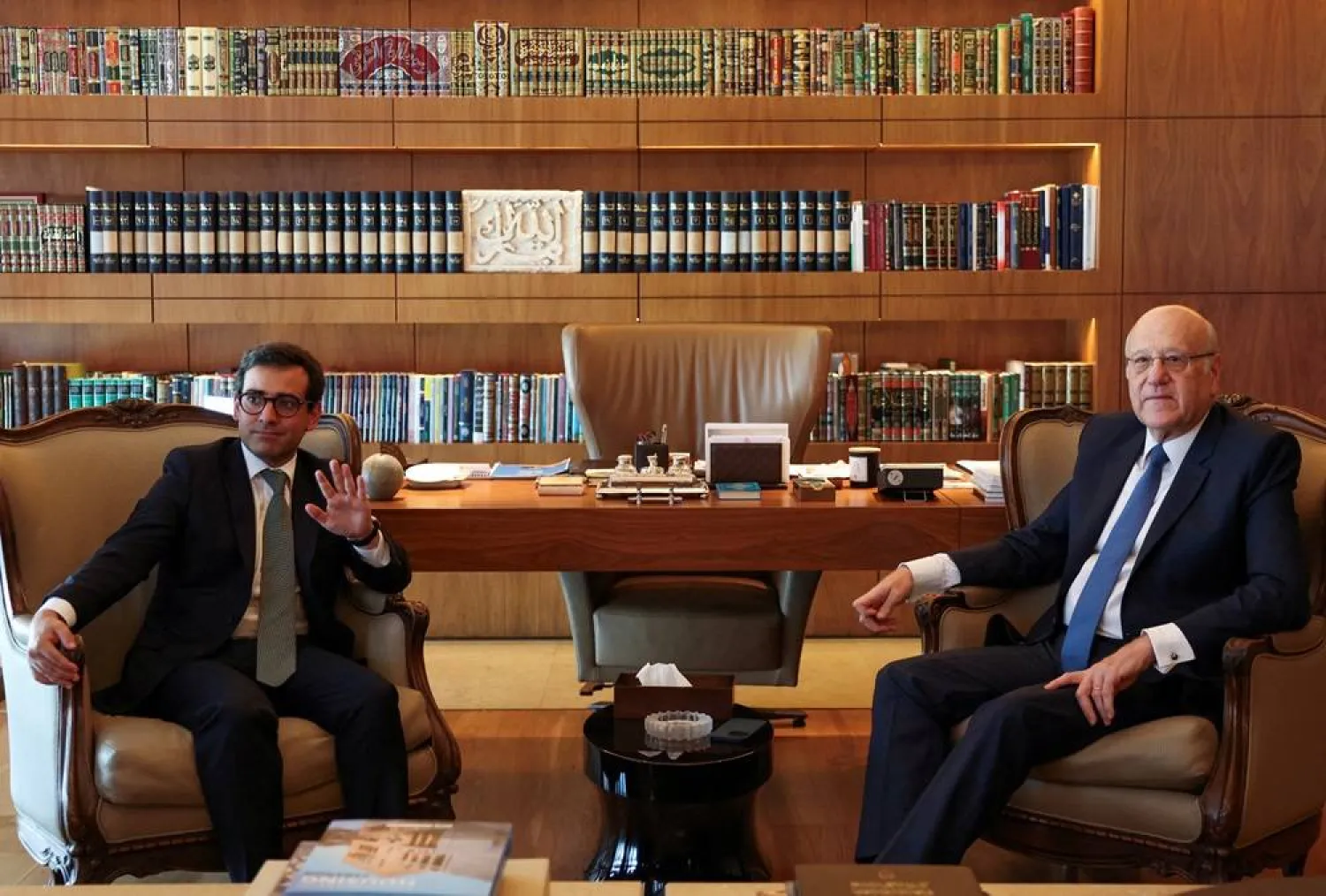France's Foreign Minister Stephane Sejourne stressed on Thursday his country’s support for Lebanon, expressing appreciation for its "self-restraint in this difficult period" in the region.
The FM kicked off on Thursday a visit to the region by meeting Lebanese caretaker Najib Mikati and parliament Speaker Nabih Berri in Beirut.
He is scheduled to visit Tel Aviv, Amman and Cairo amid heightened tensions over Hezbollah and Iran’s threats to retaliate against Israel for the assassination of Hezbollah senior military commander Fuad Shukr in Beirut and Hamas politburo chief Ismail Haniyeh in Tehran last month.
In Beirut, Sejourne told Mikati that France stands by Lebanon and it continues to support the United Nations Interim Force in Lebanon (UNIFIL).
For his part, the PM said: "We can only be silent, patient and praying in this difficult period."
He also stressed the importance of supporting the extension of UNIFIL’s term for another year.
Meanwhile, Berri underscored to Sejourne Lebanon’s "commitment to the rules of engagement and its right to defend itself against Israeli hostilities that have not spared civilians, journalists and medics."
He slammed Israel for using internationally prohibited weapons, such as white phosphorus munitions on agricultural fields.
The speaker also underlined the need to extend UNIFIL’s term in line with UN Security Council resolutions 1701.
Sejourne said France was focusing on easing the tensions in the region, which is a message he will relay to other countries during his tour.
On UNIFIL, he confirmed that Paris was keen on extending its term for another year.
The Security Council will meet at the end of the month to tackle the extension.
Sejourne also met his Lebanese counterpart Abdallah Bou Habib, who revealed that Lebanon did not receive any messages or threats from Israel through the French FM or US special envoy Amos Hochstein, who was in Lebanon on Wednesday.
Bou Habib said discussions with Hochstein culminated in an agreement to extend UNIFIL’s term for another year, noting that the US had initially wanted to extend it for six months.
Qassem criticizes Hochstein
Hochstein met with Mikati, Berri and army commander Joseph Aoun.
He told officials that there was no time to waste to reach a ceasefire in Gaza, which would pave the way for a diplomatic solution that would end the escalation between Hezbollah and Israel.
Meanwhile, Hezbollah deputy leader Sheikh Naim Qassem dismissed the envoy’s visit as "performative", adding that he didn’t offer Lebanon any specific proposals.
The US wants to appear as if it is taking action, but as of yet, it hasn’t offered anything tangible, he revealed.
He also reiterated that Hezbollah was determined to retaliate to Shukr’s assassination.
Hezbollah vowed to "continue the brave and wise resistance with all the capabilities at its disposal in defense of Lebanon and its people, their freedom and safety and will to lead a dignified life."
In a statement marking the 18th anniversary of the end of the 2006 Hezbollah-Israel war, it vowed to carry on with its operations "in spite of the Israeli threats, American aircraft carriers, assassinations and local and foreign media campaigns."
"Lebanon will never again be occupied, and it will never be taken hostage by the enemy. It will never be open to normalizing ties [with Israel]," it declared.









